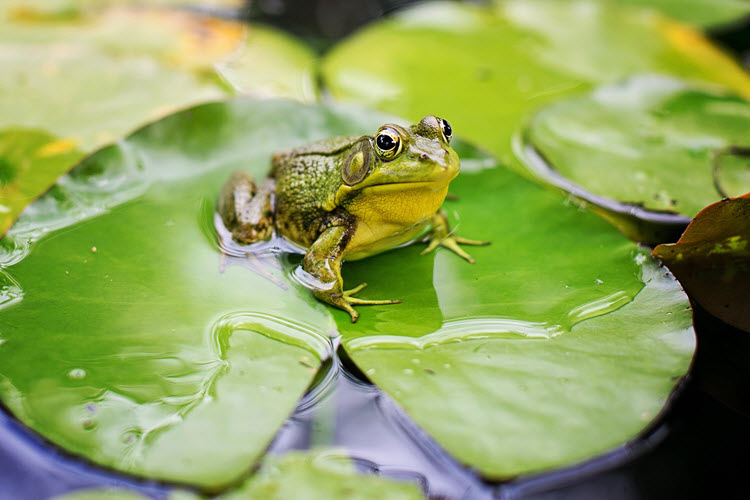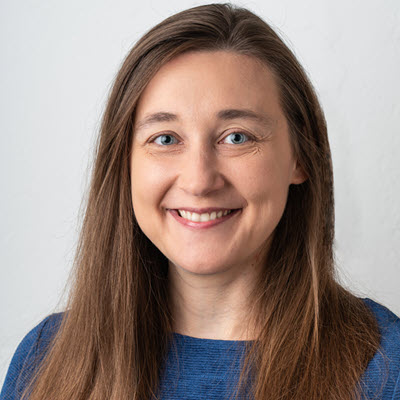Eat your frog or easy win?
Two approaches for starting your writing sessions

Image credit:
Now that it’s summer, if you’re a graduate and postgraduate student, you’re likely settling in to a writing routine to try to make progress on your dissertation. When your schedule is more flexible, it can sometimes be difficult to know how to start each day. As such, we thought it would be nice to compare two basic approaches to tackling your day: the “eat your frog” and the “easy wins” approaches.
Eat your frog
The “Eat your frog” approach refers to a quote that’s widely attributed to Mark Twain, but which we were unable to verify. Allegedly, Twain wrote that if the first thing you do in the morning is to eat a live frog, you then can go through the rest of the day knowing that you already have experienced the worst thing that is going to happen to you that day.
Productivity gurus have taken this idea and run with it. In today’s interpretation, eating your frog simply means doing the hardest or most important task you have to complete that day before you do anything else. According to many self-help guides and articles, this will then give you a feeling of accomplishment, which will also help you be more productive the rest of the day as well.
The logic as explained by author Brian Tracy in his book “Eat That Frog!”, which popularized the approach, is that we will never be able to finish all the items on our to-do lists no matter how productive we are. So, we should ensure that we make time for the tasks that matter most before doing the ones that matter less.
Another reason that doing the hardest task first can be helpful is that we have a limited amount of focus and ability to make decisions each day. It follows that if we focus on easy tasks in the morning, we will then have less concentration left over for the difficult, more time-consuming, or important tasks later in the day. It makes sense, then, to prioritize the most difficult task of the day, complete it, and then move on to other tasks.
Easy wins
The easy wins method is the polar opposite of eating the frog. Also known as “quick wins”, this approach says that you should first complete a few easy tasks on your to-do list before tackling a more difficult task.
Here the logic is that large or important tasks can be so daunting that they’re paralyzing. If a task seems too big, you may be more likely to procrastinate and then not end up doing any work at all. The idea behind easy wins is that by successfully completing a few shorter tasks, you will then build up your confidence and be more motivated to tackle the difficult task.
Of course, your shorter tasks can also be ones that help you make progress on your “frog”. For example, if you need to finish a chapter of your thesis, your first small task can be to complete one single paragraph. As we’ve written about before in a previous blog post, when you complete a very limited writing task, the anxiety fades away and it’s then easier to continue writing.
Which approach is better?
So, which strategy is the “correct” one? While many of the self-help gurus would claim that their approach is always the best way to start your work tasks in the morning, I think a more nuanced view is called for. If you’re anything like me, your mindset and motivation can vary a great deal from day to day. It makes sense to use the approach that will help you the most at any given time.
For example, if you notice that you’ve been procrastinating on writing the introduction to your dissertation for a few days, you should probably use the “eat your frog” approach and keep going until you’ve finished a rough draft. If you’re feeling stuck and anxious that you’re not making any progress, you may find that completing a few simple tasks in the morning helps you build some much-needed momentum.
I would caution against only working on “easy wins” kinds of tasks during your day, though. Although you can break a dissertation down into a series of small tasks and then go through and complete them one-by-one, some of these tasks really won’t be the kind that can be quickly checked off a list. That’s just the nature of academic work, and there’s nothing wrong if it feels incredibly slow-going at times.
If you are prioritizing easy wins throughout the day, you may have the feeling that you are getting a lot done because you are able to finish a lot of tasks, but if you’re not completing the most important tasks at some point, you paradoxically may end up wasting your day.
Anyone who has to answer a lot of emails probably is familiar with this phenomenon; it feels great to send off replies one after another and check off or archive each message. However, as author Cal Newport has pointed out in his book Deep Work, if you spend too long on email, that will give you less time for the more uncomfortable, higher-level thinking you need to do to create meaningful work, such as writing a ground-breaking dissertation.
Methods for success
Whichever approach you use, there are some additional things you can do to help you be more productive whether you’re tackling your frog or going for an easy win:
- Plan out your tasks the night before so you can get to work right away in the morning. If you’re working with Citavi, you can save tasks related to your dissertation in the Task Planner.
- When planning out your tasks, make sure they are well-defined and manageable. Don’t plan to write 20 pages in two hours, for example.
- Make sure you have everything you might need before you start working.
- Make sure you have a chunk of time in the morning during which you can work without interruptions.
- Eliminate distraction by leaving your smartphone somewhere else.
- Work in a dedicated space.
- Give yourself breaks or rewards when you complete a task.
We’ve written about many of these tactics in previous blog posts, so if you want to learn more, check out the links below.
We hope this article will help you think more about the strategy you use when starting your writing each day. By using the approach that fits best each morning, you’ll be well on your way to getting one step closer to submitting your dissertation.
When starting a writing session, which method do you prefer: eating your frog or racking up a few easy wins? Let us know on our Facebook page!
Further Reading:
Other Planned Accidents blog posts that discuss productivity strategies:
No More Multitasking
https://www.citavi.com/en/planned-accidents/articles/no-more-multitasking
Three Studying Tips
https://www.citavi.com/en/planned-accidents/articles/three-studying-tips


